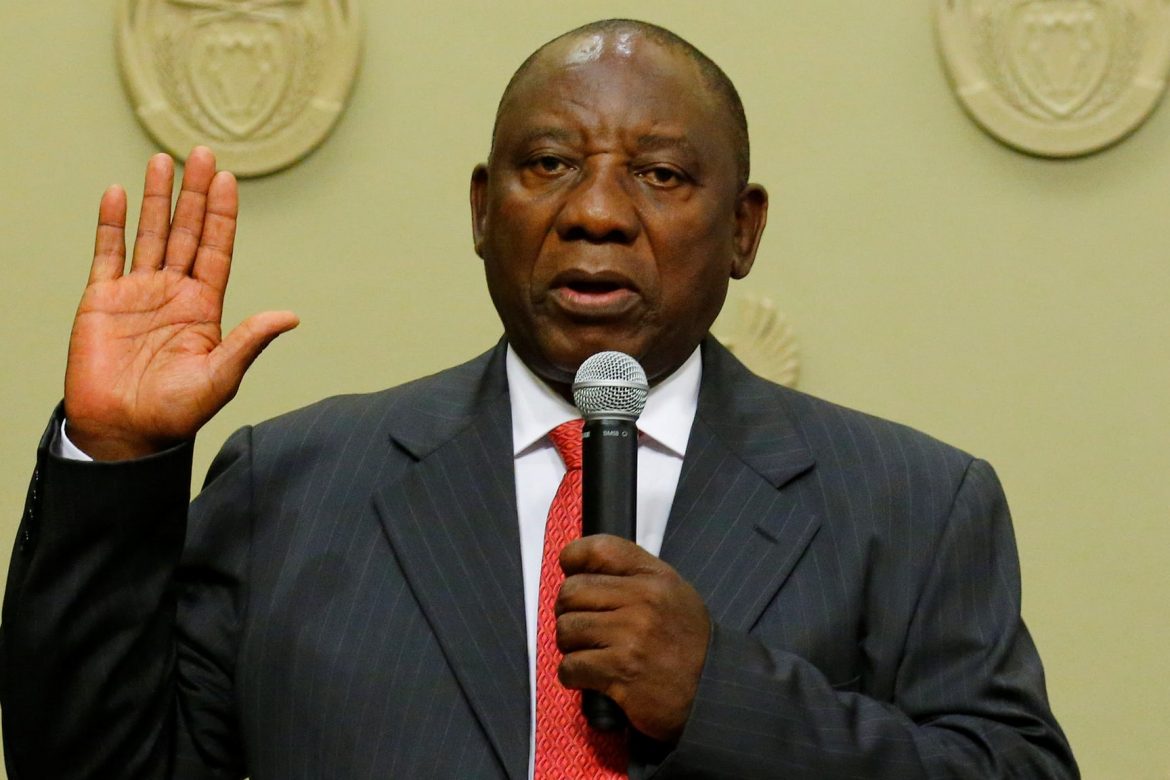This material belongs to: The Guardian.
New president to deliver first major speech vowing to prioritise economic growth and combat inequality.
Cyril Ramaphosa will outline his strategy to restore economic growth, fight corruption and tackle entrenched inequality in South Africa in the first major speech of his presidency.
The former deputy president was sworn in as head of state hours after being elected unanimously by parliament to replace Jacob Zuma, who resigned late on Wednesday following accusations of corruption and economic mismanagement.
In a short speech in parliament on Thursday, Ramaphosa, 65, vowed to fight graft and unite South Africans.
“Issues to do with corruption, issues of how we can straighten out our state-owned enterprises and how we deal with ‘state capture’ are issues that are on our radar screen,” he said, in a reference to alleged improper influence over government institutions, ministers and state-owned businesses by Zuma’s associates.
Ramaphosa reached out to opposition parties, telling parliamentarians “South Africa must come first in everything we do”.
“This is not yet uhuru (freedom). We have never said it is uhuru. We are going to seek to improve the lives of our people on an ongoing basis, and since 1994, we have done precisely that,” he said.
Who is Cyril Ramaphosa?
Early life
Ramaphosa was born in Soweto, a township near Johannesburg and the centre of the anti-apartheid struggle, in 1952. He became involved in activism to end the apartheid system while studying at university and was arrested in 1974, spending 11 months in solitary confinement.
End of apartheid
After graduating, he co-founded the National Union of Mineworkers, which is now one of the biggest and most powerful trade unions in South Africa. Ramaphosa was a key part of a taskforce that led South Africa’s transition to democracy and is credited with being a skilled negotiator. Despite Nelson Mandela describing him as one of the most gifted leaders of the “new generation”, Ramaphosa failed to get the ANC nomination to succeed Mandela as president in 1999.
Buinessman
After that blow, Ramaphosa swapped politics for a lucrative foray into business, using his union connections and becoming one of the richest men in the country. His popularity took a knock in 2012 when police shot dead 34 striking workers at a mine operated by London-listed Lonmin. At the time of the killings, Ramaphosa was on the board of directors and had called for a crackdown on the strikers, whom he accused of “dastardly criminal” behaviour.
Return to politics
In 2012 Ramaphosa returned to politics and two years later he became South Africa’s deputy president. Despite being part of Zuma’s administration, he is seen as a reformer who will steer the country away from the corruption scandals that have hurt the economy.


